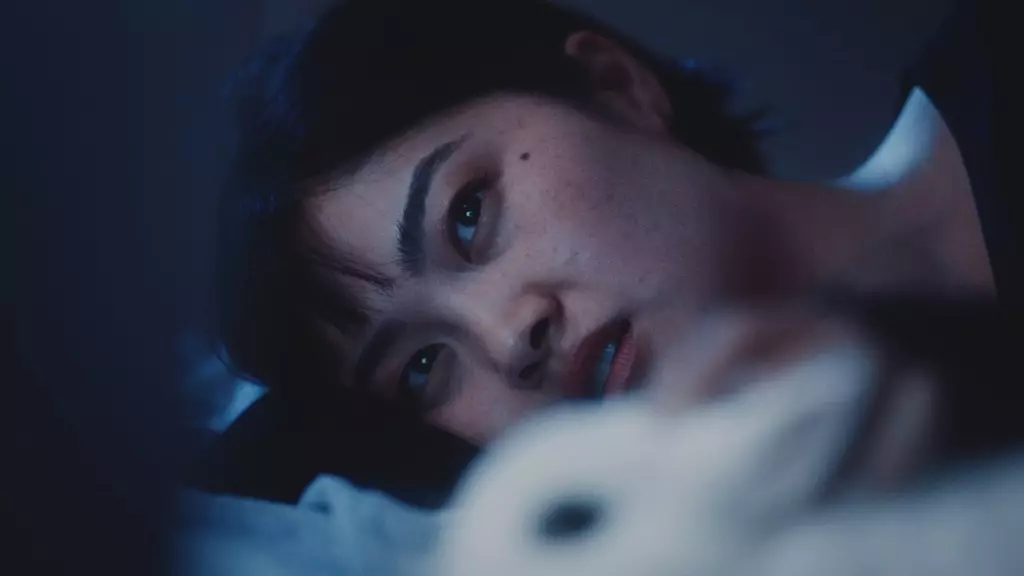Katarina Zhu’s *Bunnylovr* marks an impactful entry into the realm of independent cinema, blending humor and pathos as it navigates the complexities of modern life. This feature debut stands out not only for its authentic storytelling but also for its deft examination of personal identity against the backdrop of digital intimacy and familial relationships. By placing the character of Becca—a 20-something Chinese American navigating her existence in New York City—at the forefront, Zhu crafts a narrative that resonates deeply with anyone who has ever grappled with issues of self-worth, connection, and the intricacies of being seen.
At its core, *Bunnylovr* presents an incisive critique of how external perceptions shape one’s self-identity. Becca, portrayed by Zhu herself, juggles multiple roles in her life—namely that of a cam girl while wrestling with the societal expectations that come with it. The character’s interactions paint a vivid picture of what it means to exist in a society where individuals can often feel reduced to their appearances or the pleasing of others. Becca’s experiences, particularly regarding her encounters with varying degrees of objectification, highlight the pressures exerted by friends, family, and romantic interests.
The introduction of Milk, the bunny Becca receives from a persistent cam client, further complicates her journey. Initially representing a burden, the pet evolves into a nurturing force for Becca—a symbol of her desire to reclaim her life and make choices that serve her well-being. The way Becca grows attached to Milk reflects a pivot from her passive existence into an empowered stance, wherein she learns to prioritize her own needs and embrace self-love.
A significant aspect of *Bunnylovr* is its exploration of Becca’s relationship with her estranged father, played by Perry Yung. The narrative offers a poignant commentary on parental relationships, especially in contexts where emotional distance has been fostered by neglect or unresolved past issues. Their chance encounter serves as a catalyst for Becca, thrusting her emotions to the fore as she reconciles with the reality of her father’s frailty and the repercussions of his absence in her life.
Zhu’s decision to intertwine Becca’s quest for intimacy with her complicated familial ties enriches the narrative, enabling an emotional resonance that is both palpable and relatable. The film captures how unresolved familial conflicts can echo through adulthood, impacting one’s ability to form healthy relationships. As Becca grapples with her father’s shortcomings and the weight of his expectations, the audience is invited to witness her journey toward forgiving not just her father but herself as well.
In the age of digital interaction, *Bunnylovr* expertly navigates the blurred lines between genuine connection and superficial encounters. The relationship Becca develops with her online client John (Austin Amelio) is particularly telling; it showcases how digital platforms can foster intimacy while simultaneously perpetuating power imbalances. Zhu addresses the complexities of such relationships, emphasizing the duality of desire for financial gain versus authentic companionship.
Rather than vilifying Becca’s choices, the film portrays her gradual awakening to the implications of these interactions, leading her toward self-awareness and agency. As her bond with John evolves, Becca confronts the emotional toll of feeling like a commodity—driving home the theme that true connection stems from feelings of respect and understanding, rather than mere transactional exchanges.
*Bunnylovr* emerges as a relevant examination of a drifting people-pleaser’s struggle to find her identity amidst chaos. Drawing inspiration from Zhu’s own experiences, the film is a deeply personal journey that culminates in a celebration of self-acceptance and emotional resilience. Through her transformative relationship with her pet rabbit and her navigation of toxic affiliations, Becca ultimately learns the importance of mindfulness.
The interplay of humor, warmth, and sincerity in *Bunnylovr* allows it to transcend the traditional boundaries of its genre, crafting a narrative that is both specific and broadly relatable. As audiences follow Becca on her tumultuous yet rewarding journey, they are left with an empowering message about the value of self-love and the pursuit of authentic connections in our increasingly digital world.

Leave a Reply